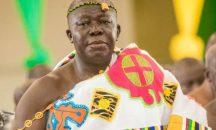International Day of Sign Languages: Stakeholders push for‘official sign language policy’

The organisation want sign language introduced in basic and secondary school curriculum
Following the commemoration of this year’s International Day of Sign Languages on September 23, 2022, non-profit organisation, HearMi Ghana, and partner institutions have appealed to the government to “recognise the Ghanaian Sign Language (GSL) as an official language of the deaf” in the country.
The organisation again calls for the implementation of a legislative framework to “enhance sign language education and protect the rights of the deaf.”
It said successful implementation of the Ghana Sign Language Policy (GSL) would ensure that public service providers employed the services of sign language interpreters to aid communication among the deaf and the general public.
Mr William Hodzi, Founder of HearMi Ghana, noted in a statement that Ghana had ratified the United Nations Convention on the Rights of Persons with Disabilities (UNCRPD) which included the deaf in 2012, but “it is yet to comply with the provisions outlined in it to enhance sign language education and protect the linguistic right and identity of the deaf communities.”
Referring to figures from the Ghana Association of the Deaf, he said there were about 110,625 deaf and about 20 schools for the deaf in the country. However, “the quality of education compared with their counterparts at the mainstream hearing schools is below standard.”
Key among the reasons, according to him, was “the fact that we do not have a Ghanaian Sign Language Policy.”
“Governments upon governments lack the political will to push for the policy and its implementation because of the financial commitments that come with it,” he noted.
Mr Hodzi said over 300 sign languages were used as a source of communication by about 70 million deaf globally but the “unavailability of a formalised sign language policy was affecting the funding process and systematic administration of sign language services in Ghanaian schools for the deaf.”
“In 2006, Persons with Disability Act, (Act 715) was passed to protect the rights of PWDs including people who could not hear.
“This Act is a good attempt but woefully inadequate compared with global and other regional disability legislations because it has no policy to promote the Ghanaian Sign Language,” he added.
Implementation of the policy, according to the HearMi Ghana, would ensure the deaf community “communicates freely with the general public without any difficulty.”
The organization further urged the Ministry of Education and Ghana Education Service to introduce the study of Ghana Sign Language into the curriculum of basic and second cycle schools in the country.
It commended institutions such as the University of Cape Coast, University of Ghana, Ashesi University and other institutions that had policies that encouraged the study of GSL as part of requirements in obtaining first degree, and encouraged media houses to continue employing the services of sign language interpreters on television during important state programmes.
HearMi Ghana champions activities that reduce the incidence of hearing loss in Ghana by engaging in advocacy, health education, screening, research, treatment, rehabilitation services and other philanthropic activities to assist people who are hearing impaired.
By Ernest Nutsugah















